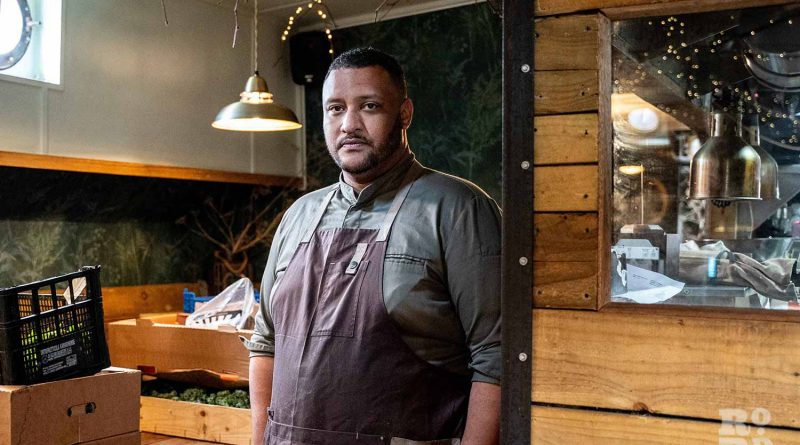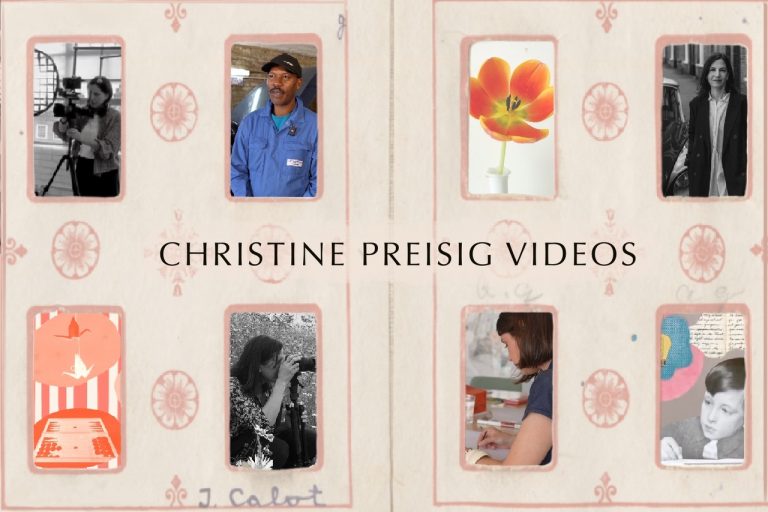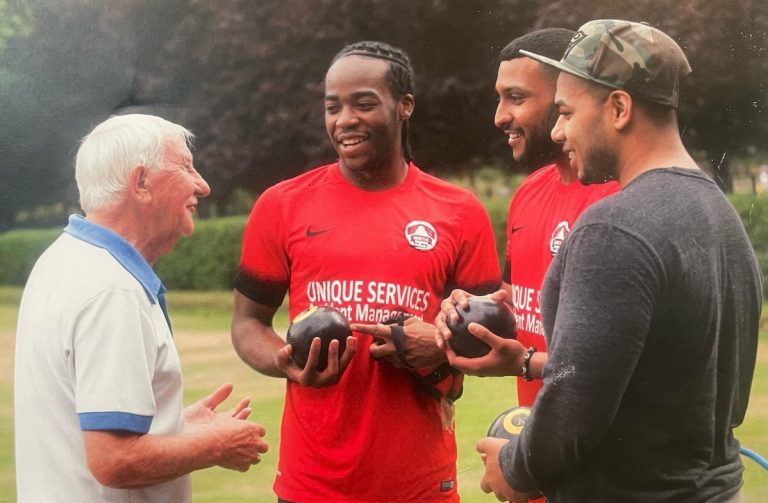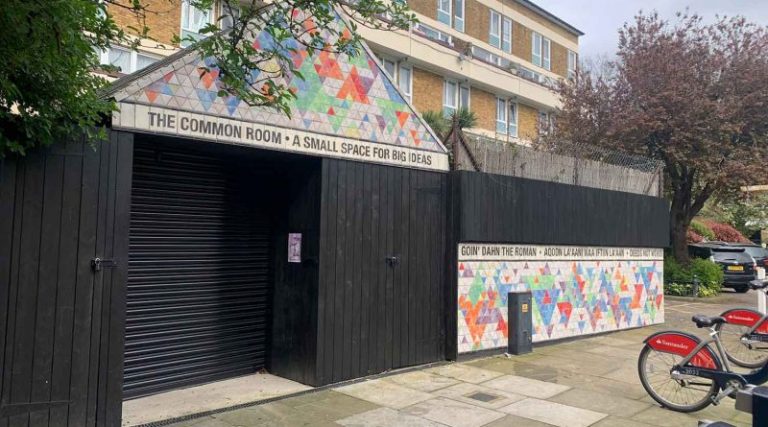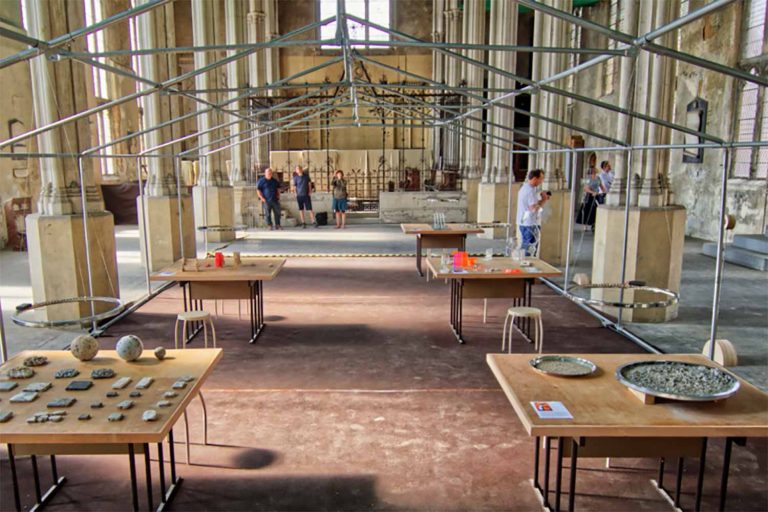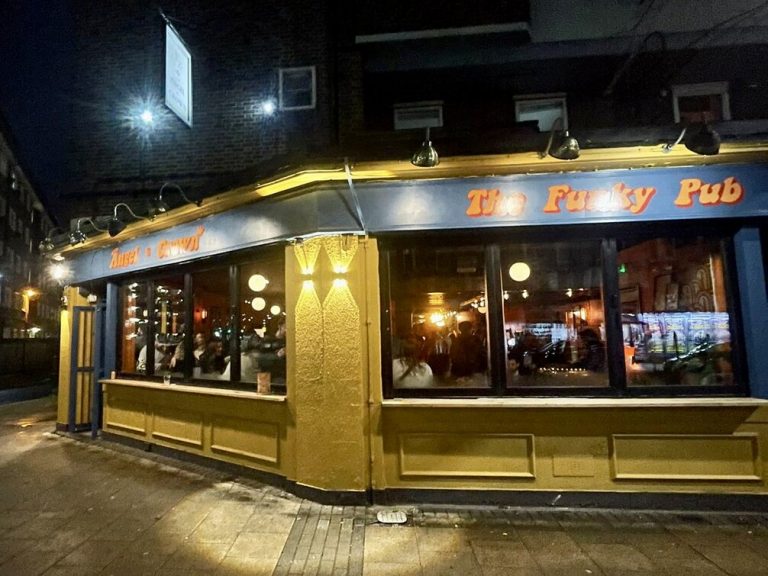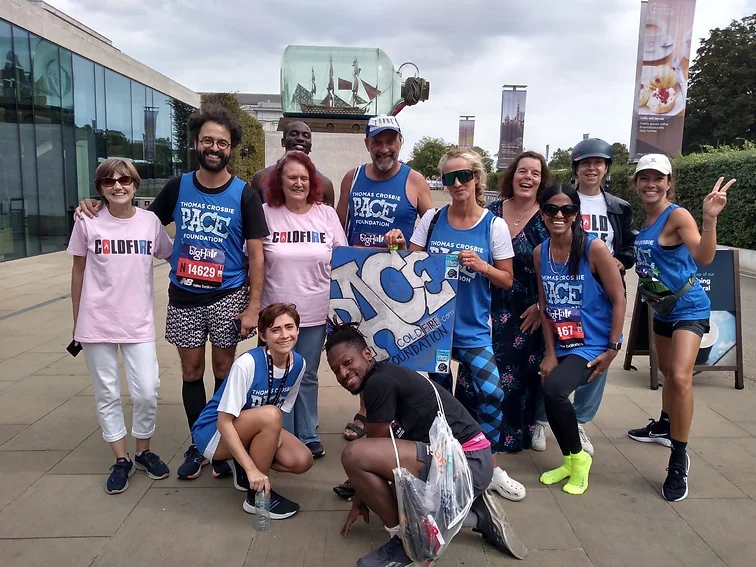‘You have to have some kind of trauma’: Gavin Gordon on the dark side of culinary success
From working 90 hours a week to battling insomnia and coping with heart failure, Barge East’s new executive chef Gavin Gordon reveals the ups and downs of the culinary world with a big thank you to Jamie Oliver.
‘I think I’ll die in the kitchen,’ says Gavin Gordon from a dining table at Barge East, the floating boat restaurant in Hackney Wick where he’s just become executive chef. We’re sat in a cosy 120-year-old Dutch barge, a rustic haven of casual fine dining on the scenic River Lea.
‘I don’t think I’ll ever retire. I’m going to be one of those people who can’t let go when everyone’s telling you to stop working, and then you actually just have a heart attack in the kitchen,’ he says casually. Despite Gordon’s lighthearted tone, he’s being deadly serious. ‘I think that’s my story. It sounds pretty grim, but it sounds perfect to me.’
Born in Leeds and raised in Stratford, Gordon, 39, has returned to the stomping ground of his childhood to bring his culinary flair to the sustainability-forward Barge East. But he returns a very different man to the East End kid who left all those years ago.
Gordon has spent 19 years being the head chef at prestigious culinary establishments, from Bonnie Gull and Mac & Wild to Gordon Ramsay’s The Narrow. In 2018, he even made it to the quarterfinals of BBC’s MasterChef: The Professionals, and won a GQ award during his time at The Hut on the Isle of White.
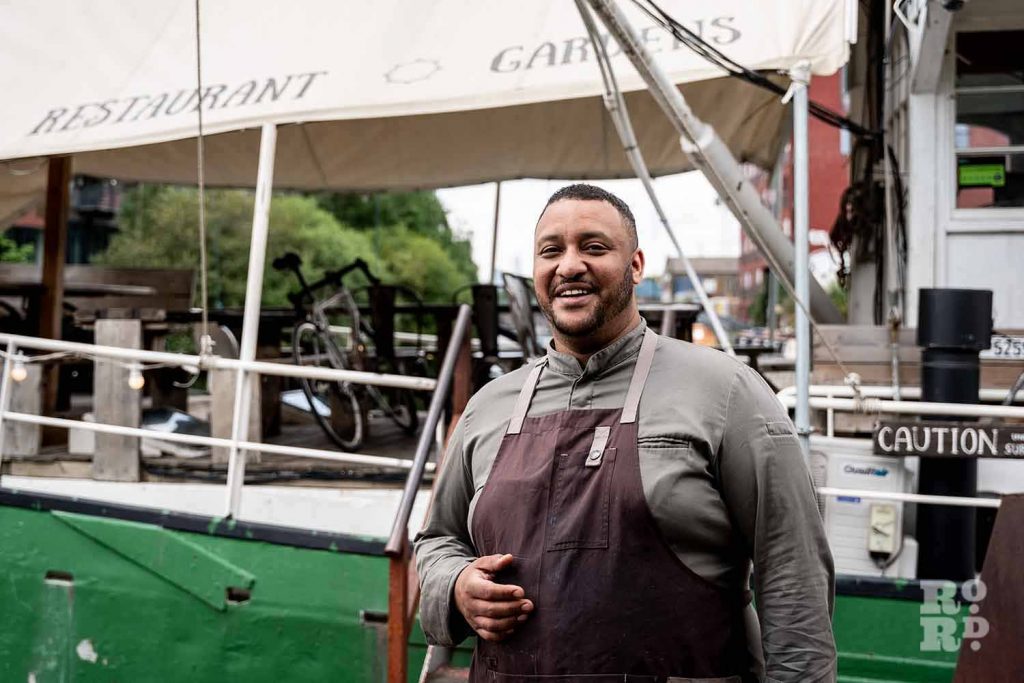
But such an impressive career would have seemed unimaginable to the kid who left Brampton Manor secondary school at 14. He spent his early teens ‘not really taking life very seriously and just being a bit of a nuisance’. Apart from English, music and maths, formal education didn’t interest Gordon. ‘I was a bit of a little shit, to be honest. Not bad, but just very naughty.’
After leaving school, Gordon started working as a mechanic. He was still feeling directionless and uninspired until Jamie Oliver’s Fifteen came into his life.
‘I owe a lot to Jamie himself personally, because he started this whole thing off, and it’s such a beautiful thing, giving people opportunities who wouldn’t have had them.
gavin gordon
A not-for-profit restaurant on Old Street offering apprenticeships to the disadvantaged and unemployed, Fifteen happened to Gordon at just the right time. Through the program, he gained an exemplary entrance into the culinary world – the envy of other chefs. He spent dedicated months on lamb and pig farms, in bakeries and butcheries, and even spent a month as a fishmonger, learning about food from its source.
‘I owe a lot to Jamie himself personally, because he started this whole thing off, and it’s such a beautiful thing, giving people opportunities who wouldn’t have had them,’ Gordon said. Despite changing the direction of many young lives, Fifteen London was one of the 22 sites which abruptly closed when the Jamie Oliver Restaurant Group went into administration in May 2019.
‘That course is amazing and it’s really upsetting that it’s not there anymore, because the foundations that they gave me… it’s literally made me who I am today,’ Gordon said.
‘Nobody has to help people. Without that, I probably wouldn’t have been focused on anything, I could have been in a very bad place.’
After graduating from Oliver’s Fifteen with a distinction, the future was set for Gordon, or so it seemed. He was thrown into the deep end at 18 years old and sent to work at the one Michelin-starred Novecento in Milan, where he worked ‘for an absolute madman’. Finishing shifts at 2:30am and waking up at 5am, Gordon was pushed to the physical and mental limit, but somehow didn’t break.
‘I hated every minute of it while I was there because I didn’t speak Italian. They spoke English but they didn’t want to,’ he said. ‘But that trauma taught me a hell of a lot and it made me learn very quickly how to communicate with people when I don’t speak a language.’
For Gordon, trauma played a fundamental part in his journey. ‘Being a chef is very close to being a soldier,’ he tells me. ‘I believe there needs to be some kind of struggle for you to strive. Everything can’t just be handed to you on a plate, and your emotions catered for every second.’
To become regimented and focused, he believes ‘you have to have some kind of trauma. It’s like breaking someone down to build them back up again’. Ideally, this wouldn’t be done in a ‘nasty way’, but for Gordon, it was.
From physical violence to ‘mind games’ and 90-hour weeks, he’s ‘been through the trenches’. ‘I’m from the old school of cheffing,’ he says, referring to a toxic culture of bullying that Gordon felt was once normalised in kitchens.
In Gordon’s early days, it was seen as a right of passage for young chefs to be put through the wringer, where they either crumble under the pressure or rise to the challenge. ‘You go through it, then you come out the other side, and you’re now the aggressor. It’s a real thing, I don’t know if people are scared to say it, but it’s just the truth.’
While working in Ramsay’s The Narrow in his early 30s, Gordon went through trials which would have broken anyone, but he didn’t crack. The pressure of 110-hour weeks and three-month stretches without a break took a toll on the father of three, who was also going through a breakup with the mother of his kids.
He developed varicose veins from the sheer pressure of standing up for 16 hours every day, as well as insomnia and sleep apnoea – a disorder in which breathing stops and starts during sleep.
‘I never slept basically. For five years, I was only ever going into the first stage of sleep, my body wouldn’t allow me to get to the third stage. I’ve got it under control now, I didn’t realise how serious it was.’ Now, Gordon sleeps with a CPAC machine around once a week to recharge before work begins.
Over the next few years, he was hospitalised three times, ‘twice with heart failure’. The sleep apnoea had taken a toll on his organs. Did he take time off at this time? ‘No. That’s very me, just keen going.’ And his mental health? ‘Probably not very good, to be honest. Probably still ain’t that great either, but I’ve grown up and can manage myself better. Before it was just destruction – wake up, go to work, keep going.’
Though he wouldn’t wish the life of a chef on his worst enemy, and certainly wouldn’t recommend the career path for any of his three boys, Gordon doesn’t have any regrets. ‘That made me who I am today, it made me as tough as I am today.’
Now as executive chef at Barge East, the award-winning Hackney Wick eatery, Gordon seems to have found peace and the freedom to creatively experiment. He’s curated a seafood-heavy menu full of Cornish crab and Maldon oyster, championing locally sourced, seasonable products with dishes like ‘British Market Fish Over Coals’ and ‘Ethical Butcher Shorthorn Beef Picanha’.
‘We’re keeping things very simple and allowing our suppliers to do the hard work for us.’ Near the bar, there’s a blackboard full of this week’s ‘sustainable specials’: eco-conscious dishes featuring ex-dairy cows and south-cost sourced fish.
After everything he’s been through, Gordon is a ‘firm but fair’ leader and a fatherly mentor to the chefs working below him. But what’s the proudest moment of his career?
‘There isn’t one thing,’ Gordon says, refusing to pick apart his journey. For him, his first head chef job is as important as ‘the first time I got fired, because I thought I was invincible up until that point’.
He might not be invincible, but Gordon is certainly stronger than most. He’s now back in the East End, bringing his extraordinary culinary talents to our doorstep, but one day he hopes to open his own restaurant. ‘By the beach. Just a little shack, so I can just do thing, in quiet and in peace.’
If you liked this article, you might enjoy our interview with Kimberley Chambers, the Roman Road Market trader turned best-selling crime author.

